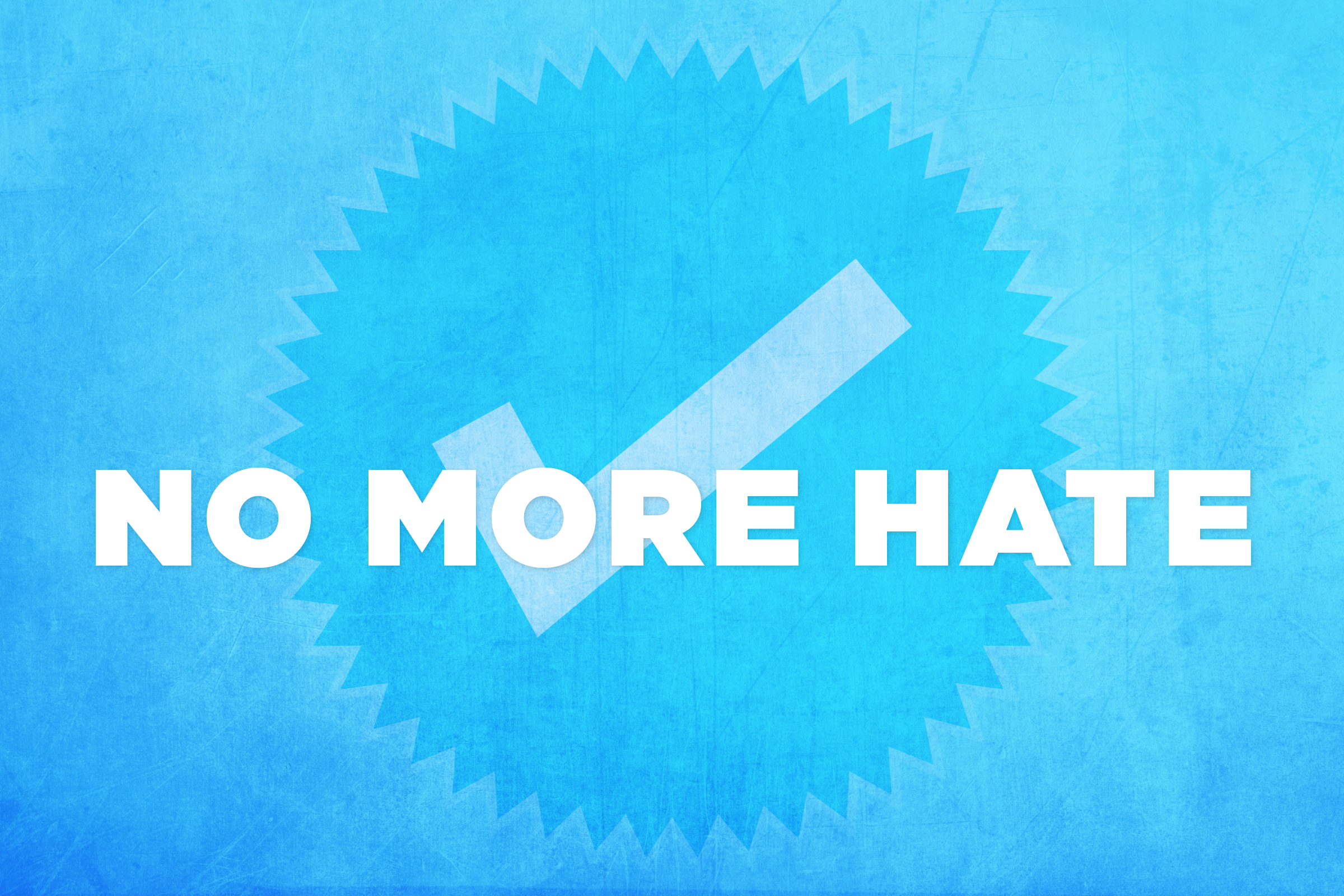FOR IMMEDIATE RELEASE
Global Alliance Against Digital Hate & Extremism Issues A Powerful Call To Action To Tech Giants To Preserve Elections And Democracy, Former Heads Of State Express Concern About Digital Influence On Democracy
NEW YORK — The Global Alliance Against Digital Hate & Extremism (GAADHE) has today released an open letter to the heads of the world’s leading technology companies demanding immediate action to fairly enforce content moderation and disinformation rules without exemptions for political and public figures. This Alliance is supported by a network of more than 70 organizations worldwide that can speak to the consequences to community safety and democracy when political and public figures are allowed to bypass the rules.
The letter, addressed to some of the most powerful tech CEOs in the world, urges them to take definitive steps to curb the amplification of harmful and violative content from political and public figures on their platforms in this year of global elections, even as they reduce election integrity staff.
Most importantly, this includes enforcing existing policies that are currently not equally applied to political leaders and influential figures who are often exempted from rules based on ‘newsworthiness’ or ‘public interest.’ This is especially evident in online political advertising where there is no fact-checking of the material at all, leading to a significant source of disinformation in all languages, but especially non-English languages.
“Social media companies have a profound impact on democracy and human rights globally,” the letter states. “Our collective experience has shown that lax enforcement of content moderation policies leads to the spread of disinformation, hate speech, and incitement to violence, which in turn fuels offline atrocities and undermines democratic institutions.”
“The eyes of the world are on technology companies at this crucial moment for global democracy, as they decide whether to lead with integrity or continue to allow harmful narratives from political figures to shape our societies and threaten communities,” said Wendy Via, co-founder of the Global Project Against Hate and Extremism. “We must demand more than ad hoc responses; we need consistent, fair application of human content moderation that holds all individuals, regardless of their status, to the same standards. The time to act is now—our democracies depend on it.”
Also released today is a letter to tech leaders from the esteemed Club de Madrid, a coalition of more than 100 democratic former heads of state. The letter highlights the alarming trend of countries moving away from democracy and toward authoritarianism, exacerbated by the influence of social media platforms and the manipulation of digital technologies. Recognizing the urgent need for action, Club de Madrid calls on technology companies to take proactive measures to safeguard democracies and electoral integrity, curtailing speech by public figures that incites violence, fuels discrimination and jeopardizes social inclusion, which Club de Madrid calls Shared Societies.
“We bear witness to the erosion of democratic values in the digital era, and are urging urgent action. Hate speech online silences voices, desensitizes societies, and undermines the very fabric of democracy, emboldening authoritarians”, remarked Danilo Türk, President of Club de Madrid and former President of Slovenia.
The GAADHE letter highlights several key concerns:
- Given the active threats to democracy, especially in this year of elections (at least 60 countries representing half the world’s population are expected to hold elections in 2024), social media and other online platforms should eliminate exemptions that allow political and public figures to spread harmful content without active human content moderation;
- A body of research suggests the incendiary rhetoric of political leaders can make political violence more likely, incites violence and gives it direction, complicates the law enforcement response, and increases fear in vulnerable communities;
- Chaos from content posted on social media platforms, including mis- and disinformation, has weakened struggling and strong democracies and has also intensified destabilization in authoritarian states;
- There is a critical and urgent need for tech companies to employ human moderators who are trained and sensitive to cultural and linguistic nuances to oversee content; and
- Members call for greater transparency and consistency in applying moderation policies to protect elections and uphold civil liberties and human rights.
The coalition offers to partner with tech companies to share expertise in implementing effective and equitable content moderation practices to help ensure a safe, fair, and just online environment that protects democracies, aligned with the United Nations Guiding Principles on Business and Human Rights.
GAADHE Member comments:
“With what we have witnessed on digital platforms in recent elections in Africa and cognizant of the fact that more than 15 countries are on their way to this critical calendar point, where hate speech and tribalism are digitally exploited as electoral weapons with dramatic and dire consequences on communities, Internet platforms and technology companies should imperatively allocate more resources to content oversight and moderation, with a special programme for electorally motivated ads.” Charlie Martial Ngounou, AfroLeadership
“At a time when hate against migrants/refugees, LGBTQI+, Roma and others is on the rise and extreme right parties campaign on such hate, social media should be as vigilant as ever, just as in the case of Greece prosecutors are and launch criminal investigations for extreme hate posts.” – Panayote Dimitras, Greek Helsinki Monitor
“India is the world’s largest democracy and as Indians we pride ourselves with the values of secularism and freedom enshrined in our constitution. Meta’s consistent failure in India has harmed our social cohesion and our democracy. We demand Meta stop taking ad money from shadow advertisers who run ads filled with ‘othering,’ dehumanizing and misleading claims about Muslims, minorities and critical voices. We can not allow social media companies to undo decades of struggle by civil society to create accountability and transparency in elections.” Ritumbra Manuvie, The London Story
“Aggressive xenophobia, racism, antisemitism, homophobia and other types of hate speech have been spread through social media platforms during electoral campaigns in Poland in the last years on a huge scale. It got many hatemongers elected to high posts and poisoned our political discourse. It is high time for the platforms to stop enabling the peddlers of hate.” Dr. Rafal Pankowski, ‘NEVER AGAIN’ Association
“This year, half the world’s population is set to cast a vote in a world where the digital landscape is actually worse than it was when powerful politicians used social media to incite insurrections in the United States and Brazil. We know from extensive evidence that those social media users most likely to cause offline harm are prominent figures, which is why it is essential that these companies apply all their rules to them as they would do with every other user, underpinned by a commitment to human moderation review. ” Kyle Taylor, Fair Vote UK
Harmful Political Speech and Disinformation Resources:
Slander, Lies, and Incitement: India’s million dollar election meme network – Ads depicting the BJP opposition as a “virus,” “demon,” and violent rhetoric to “break their spine.”
Rapport Africa Sans Haine sur les discours de haine liés aux élections du 20 décembre 2023 en RDC (Africa Without Hate Report on hate speech related to the December 20, 2023 elections in the DRC) – “Social cohesion and national unity have been seriously damaged by the speeches of candidates and their supporters, especially on social networks. More seriously, no less than 19 deaths were recorded in the electoral context.”
Democracies Under Threat: How Loopholes for Trump’s Social Media Enabled the Global Rise of Far-Right Extremism -“Violence linked to far-right political figures’ use of social media is not a matter of opinion. Experts in genocidal processes routinely highlight the power of political figures to incite violence against their perceived enemies.”
“We need to kill them”: Xenophobic hate speech approved by Facebook, TikTok and YouTube”
How Orbán Flooded Central Europe With Millions Of Online Ads During Election Season – “If you know the rules of the ads platform, this is how you can get around it.”
Latinos and a Growing Crisis of Trust – “Right-wing Latino and Hispanic accounts and influencers continued to push disinformation and misinformation in Spanish and English about false claims of Democrat-led voter fraud to steal the election.”






